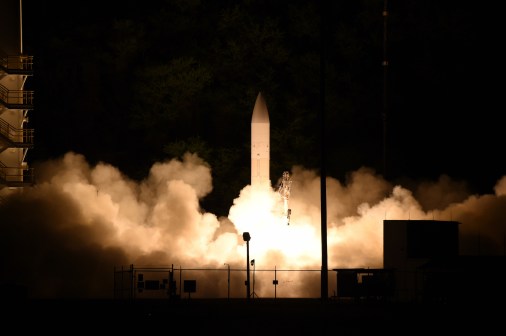DOD information operations strategy and posture review to be delivered to Congress ‘in a matter of weeks’

The Department of Defense’s forthcoming strategy has forced the Pentagon to relook how it conducts information operations, according to a top official.
The fiscal 2020 National Defense Authorization Act took aim at the state of DOD’s info ops, directing the creation of a principal information operations adviser, among other things, and requiring the Pentagon to update the 2016 Strategy for Operations in the Information Environment and designate a joint force trainer and joint force provider for information ops — much how U.S. Cyber Command is the joint force trainer and provider for cyber.
The posture review and strategy have still not been provided to Congress, senators said at a hearing Tuesday. They are now more than a year overdue.
Both documents are currently in senior level coordination and are expected to be delivered to lawmakers “in a matter of weeks” — at the latest by the end of April, Christopher Maier, assistant secretary of defense for special operations and low-intensity conflict, told the Senate Armed Services Committee during a hearing on Tuesday.
The posture review and strategy have “helped to animate a lot of the conversations, indeed action, within the department to really focus down and in on posture. And then the strategy has prompted a relook at how we go about doing information operations,” Maier said.
According to many outside experts, the DOD’s information ops capabilities relative to its competitors and adversaries began to atrophy after the conclusion of the Cold War. Congress has taken note with both chambers pushing the department to make several institutional improvements.
Last year, the Pentagon published an update to its doctrine for information.
But Maier acknowledged that the department needs to invest more in its information operations enterprise.
“It’s not been one that has frequently been a focus, frankly, and I think with more capability in the department, it’ll enhance our ability to coordinate in an interagency standpoint,” he said. “That’s still very much a work in progress.”
Maier said that information operations are a bigger priority now within the context of integrated deterrence, a key pillar of last year’s National Defense Strategy.
“Deterrence depends in part on competitors’ understanding of U.S. intent and capabilities. The Department must seek to avoid unknowingly driving competition to aggression. To strengthen deterrence while managing escalation risks, the Department will enhance its ability to operate in the information domain — for example, by working to ensure that messages are conveyed effectively. We will work in collaboration with other U.S. Federal departments and agencies along with Allies and partners,” the National Defense Strategy states, in a section about the role of information in deterrence.
The strategy notes that tailored information ops can be used to support and maybe even lead the DOD’s response to adversaries’ coercion attempts.
“Information is so critical … to all the aspects of success, especially as we start to think about adversaries we’re trying to deter,” Maier said.






